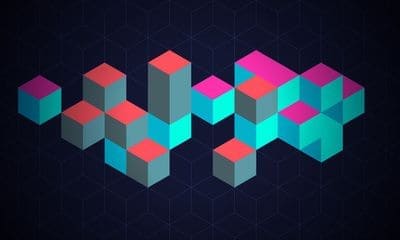Tenders, contracting, ordering, procurement, payments... Whether it's automating or securing transactions, the potential application areas of blockchain to purchases seem numerous. While operational projects remain scarce, business information systems must be prepared to incorporate this promising technology. With this in mind, Acxias has recently initiated a monitoring programme on the subject and is planning a first prototype in 2017.
If they do not yet fully measure the impacts, purchasing management is beginning to take an interest in blockchain. In any case, this is what transverse when asked about the subject. "I am very excited about the very principle of this technology," says Pascal Pelon, Axa France's purchasing director. "If I haven't yet identified an easy-to-implement solution that complies with our internal rules, especially for euro payment, I'm still on active watch on the subject." The same position for Joel Aznar, in charge of purchasing data governance at Schneider Electric, but with more reservations: "This is one of the subjects that I am, in the context of my work of technological monitoring," he explains. But before starting a project, I will wait for business publishers to take the plunge, if there is real potential."
Rejecting the idea of a "buzzword" marketing, most of the major e-purchase publishers are reportedly positioning themselves. Ivalua, SAP Ariba and SynerTrade in any case provide it. Determine also brought in Claire Balva, co-founder of Blockchain France, during the recent presentation of its integrated suite. The publisher explains that it has been studying the subject for several years, with some of its clients in the financial sector in particular.
"At the moment, we are only looking at architectural and technology choices. But we are interested in two applications, around securing buyer-supplier transactions, mainly orders sent, and contracts." Julien Nadaud, its product manager.
An unfalsifiable and irrevocable database
The benefits of the blockchain, which appeared in 2008 at the same time as the virtual currency bitcoin, however, go far beyond that. His principle? In the blockchain, transactions are recorded in blocks of information connected to each other, composing a chain stored by all network participants and not dependent on a central organ. The validation of the blocks is ensured by cryptographic means and by a logic of approval of information by consensus between the links of this network, also called nodes. The result is three-tiered benefits: the ability to limit intermediaries in exchanges, the ability to ensure compliance (authentication and integrity) of a transaction or information without recourse to a higher authority, the absence of dedicated infrastructure since the necessary computing power is provided by participants' machines and optimized by algorithms.
In a more operational application context, a blockchain not only provides a database that contains the history of all exchanges between users, but it is unfalsifiable and irrevocable due to the technologies used and the distribution of information in multiple points. "In addition to securing transactions (proof of documents, time stamping, etc.), technology allows for cheaper and faster exchanges," says Claire Balva. "Through the principle of smart contracts, it also guarantees the execution of the terms of a contract, under certain conditions, via "oracles" that provide validation." This validation and certification of each block is made possible, in extremely short periods of time, by the principle of "mining", i.e. the use of the computing power of the decentralized network.
The use of the blockchain as part of the procurement process is of interest at several stages. Upstream, on the source-to-contract process, it could first ensure transparency of tenders, through optimized management of the history on current or past files. Similarly, for contracting and contract management, technology would verify and certify the existence of documents, the history of changes and versions. The use of "smart contracts" would ensure the existence and execution of certain clauses, such as the terms of the service or the terms of its settlement.
Specialized engineers recruited by acxias
On the downstream supply-to-pay process, the stakes are mainly related to the quality and traceability of transactions. "The blockchain could first be a way to automate and further secure ordering, guaranteeing validation and then sending," says Claire Balva. It should be noted, however, that this role is already largely provided by Business networks, intermediation platforms on which all transactional or logistical flows can be traced.
For quality control and supply monitoring, the use of blockchain technology to store information on items would make it possible to irrevocably verify their provenance, authenticity or distribution channel. Finally, at the end of the process, billing and payment could be optimized. Julien Nadaud considers that "the blockchain could be used in particular as part of the audit trail in electronic billing ». However, "the evolution of the applicable legislation and tax rules in this area will take you time," tempers Bertrand Gabriel, director of Acxias. Without necessarily allowing cryptocurrencies, which are still little recognized by companies, the payment could be triggered automatically thanks to smart contracts that would guarantee the proper execution of the purchase.
Faced with this evolution, Acxias has therefore initiated an active monitoring programme on this subject and recruited specialized profiles, including Guillaume Vassaux, a cryptographic engineer who has already participated in blockchain projects Ethereum. Based on his expertise, Acxias reviewed the entire source-to-contract and procure-to-pay process, and identified several topics for which blockchain technology could bring significant added value in terms of security. "A key point of our research is the communities to be implemented for mining activities," explains Bertrand Gabriel, adding that "Business networks (SAP Ariba, Perfect Commerce, etc.) could play a role in this area." A prototype is planned for the first half of 2017. Beyond the technology, which today seems mature for the market, many aspects (regulation, risk, control, development and management costs, security, data privacy, etc.), remain to be clarified. Particularly sensitive aspects of the buying business and which are all areas of work for the teams'Acxias' months and years to come.

